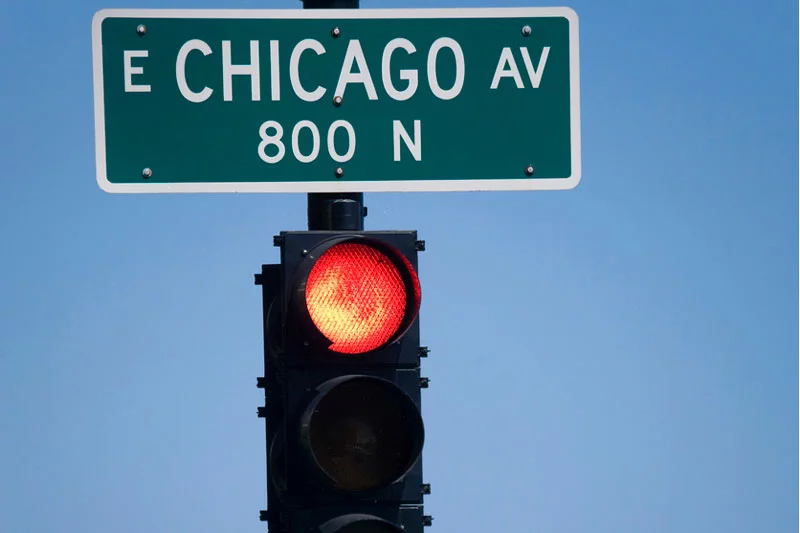Treasure Island is closing. I blame myself.

Originally Published in the Chicago Tribune
The man at the deli counter told me that Treasure Island was closing. In the space of an hour I experienced nearly all of psychiatrist Elisabeth Kubler-Ross’ stages of grief — denial, anger, the need to bargain (but with whom?) and then depression.
After all, its outdated sign and parking lot on Broadway at West Stratford Place had been there, it seemed, forever, a symbol of endurance as other stores and fads had come and gone. In the city, there are few more enduring ties to my childhood and indeed my adult life. And, of course, the most important occasions revolve around food. The decades of Thanksgiving and Christmas dinner turkeys, baby food for my newborn, the deli trays ordered for shiva, the last-minute trips before the Jewish holidays to stock up on food to give to those in need.
But today, what I mainly feel is guilt, because I played a role in the demise of Treasure Island.
Like the person who too late realizes she should have treated her lover better as he walks out the door, I am overtaken by remorse.
Did I really need to buy a six-month supply of paper towels at Costco just to save a dollar or two? Was it really that much more convenient to order Method soap online? Were the strawberries at Whole Foods really any better tasting than the ones at Treasure Island — organic or not?
I loved a story I heard about a woman whose wallet was found and returned by a Treasure Island employee. When I needed grape leaves for a party and the store was all out, I personally appreciated the staff person who called another location and made sure the product arrived in time.
The remorse I feel is rooted in more than nostalgia; it’s about integrity, community and even safety.
When my local pharmacy was sold to Walgreens and a young pharmacist there decided to open his own shop, my choice was very clear. I understood the importance of having a pharmacist I knew and, in the three years that he has been in business, I have never strayed. I encourage others to pay the extra dollar or two to support that small business.
Why? Because I trust that the personal relationships he and his staff forge with their customers not only feel good but ensure a better outcome — fewer mistakes, more care.
Is it any different with a grocery store? For years I knew Carla in vegetables and then Gus. When I, or any customer, asked for something new or which cantaloupe was ready to eat, the answer would be one that you could trust.
Chicago is a city of progressives: the city that gave the nation the eight-hour day, elected Harold Washington as mayor and brought Barack Obama to the notice of the nation. We pride ourselves on being the city of neighborhoods, of small businesses, a place where the second-highest-grossing shopping district is the entrepreneur-packed neighborhood of Little Village.
We are also a city of wealth, particularly and ironically in the neighborhoods where Treasure Island felt forced to shutter its stores — in Hyde Park, Lincoln Park, Lakeview, Old Town and the Near North Side.
We are also a city that likes to blame our problems on our elected leaders, whether it is parking meters or property taxes. We get exercised, as we should, about the loss of neighborhood schools; we should get as exercised about the loss of neighborhood stores (as anyone who lives in a food desert on the West or South sides will agree).
The truth is that what happens to our neighborhoods, to our businesses or to our commercial streets is really less about what happens in City Hall or City Council and more about the decisions that each of us makes each day.
Locally owned businesses are important for small and big reasons:
They can be held accountable for what they do well and when they falter.
They hire locally (often giving neighborhood kids their first jobs).
They are important civic allies in neighborhood and city matters.
They build community wealth by keeping assets and profits in our city.
Kubler-Ross’ last stage of grief is acceptance. But in this case, I’d argue that acceptance is less of the fact than of the responsibility. If we want strong neighborhoods, we have to fight for them — not only by insisting that our leaders provide bus service or schools or parks, but by making the small but critical decisions in our own lives that reflect our often asserted, but rarely lived, values of thinking global and acting local. The need and opportunities are great. It is not too late to start.




